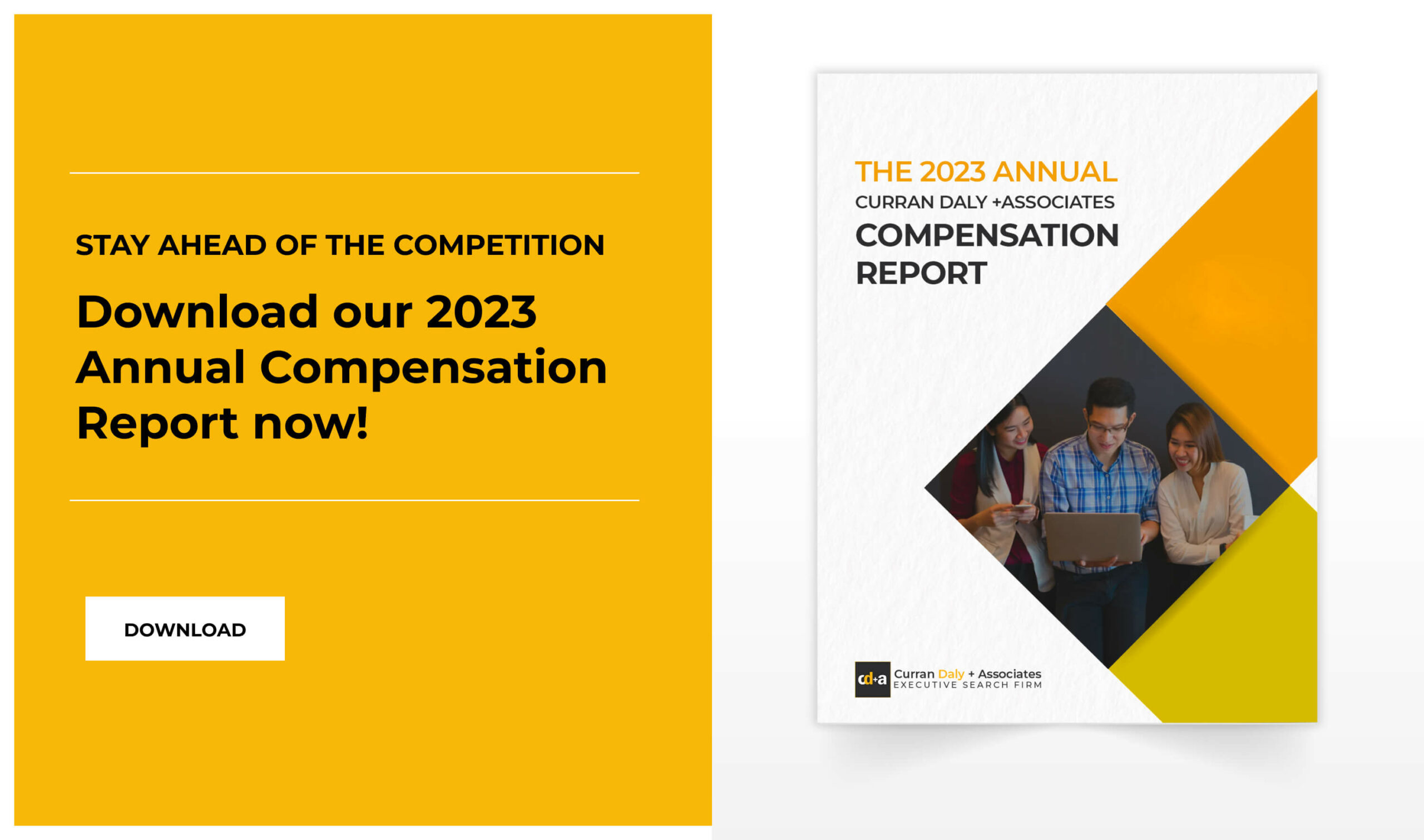- While it’s widely acknowledged that providing feedback is crucial to the recruitment process, it’s often overlooked, particularly when it comes to unsuccessful candidates.
- Providing feedback to candidates is crucial because it is a positive way to end the recruitment process, both for the company’s reputation and for the candidate.
- Offering honest yet constructive feedback can help create a positive candidate experience for the organization, ensuring future talent is attracted.
- Giving feedback to unsuccessful candidates can distinguish a business from others and establish a favorable brand image.
No one likes to hear they didn’t get the job, but at the same time, we all want to know ‘officially’ instead of never hearing anything at all on the status.
This is why recruiters and employers must give honest and thoughtful feedback to candidates who didn’t get the job they applied for. Providing meaningful feedback enhances a candidate’s learning experience. It leads to better results in future interviews, while clarifying why a candidate did not make the cut enables others to consider similar applicants efficiently.
Unfortunately, though, giving feedback after a rejection is something many of us struggle with; we may be uncomfortable or unmotivated by emotions such as disappointment or guilt.
According to a survey conducted by CareerPlug, 45% of candidates reported experiencing employer ghosting, which remains a common occurrence.
How you handle a candidate you do not intend to hire may lead to a negative candidate experience and harm your employer brand. It is essential to keep in mind that this experience can influence your chances of attracting top candidates for future job positions.
This blog post discusses why failing to provide feedback to unsuccessful candidates isn’t just bad etiquette – it’s bad business.
Why giving feedback to unsuccessful candidates is important
Providing feedback is crucial for both employers and employees. It gives candidates valuable insight into how they can improve their skills and allows recruiters and hiring managers to decline a candidate while leaving a positive impression respectfully.
In addition, providing feedback to candidates who were not selected is vital for multiple reasons:
Candidates are potential customers
This professional courtesy is a reflection on the whole company. According to HRPR, on average, people tell one friend about a positive experience and at least ten friends about a negative experience.
If you don’t provide feedback to your candidates and just hope that by not hearing from you, they will assume they have been unsuccessful, you and your organization will develop a bad reputation in the industry and the marketplace.
Feedback must be integrated into your recruitment process
Providing feedback to unsuccessful candidates should be considered part of the recruitment process. A great hiring manager is able to leave even unsuccessful candidates feeling optimistic about the process and their opportunities with the organization in the future. The candidate you rejected today could be a perfect fit for another position in the future.
You can help these candidates improve professionally
It is important to remember that most people begin their career at an entry level, whether or not they are suitable for your organization. At this level, it can be difficult to find helpful advice. Providing feedback shows understanding, direction, and encouragement, which is especially valuable for candidates starting their careers.
Giving feedback is not only good for your company, but you’re also helping the candidate to understand where their strengths and weaknesses lie. Candidates need to know how they can improve.
Save resources and time in the long run
According to LinkedIn’s survey, candidates place a high value on interview feedback and are four times more likely to consider a company for future opportunities if they receive thoughtful feedback. Furthermore, 52% of candidates will maintain relationships with businesses that provide them with suitable feedback.
Providing feedback to unsuccessful candidates can help maintain a positive relationship, increasing the likelihood that they will apply for other job openings within your company. This can save time and resources on recruitment and training.
The impact of not giving feedback
Failing to give feedback can have severe consequences for your business and the candidate.
- Job seekers invest a great deal of time and energy in the application process, making it doubly disappointing when they don’t receive feedback regarding their submission. Failure to provide constructive criticism could ultimately lead to a negative perception of the company, as unsuccessful candidates wonder if their time and effort were not valued during the hiring process.
According to a survey, 28% of candidates have written a negative online review due to a bad recruitment experience, implying that negative candidate experiences often result in negative online reviews.
- The lack of feedback can significantly harm the number of future candidates and the overall hiring success of the company. In fact, over half of job seekers abandon their search after reading negative reviews on employer review sites like Glassdoor and JobSage.
- The top grievance of 52% of job seekers is the absence of feedback from employers during their job search. A lack of communication following rejection can create an air of frustration as unsuccessful job seekers ponder why their application was discarded. Without guidance, they may be unsure where to focus their attention for future applications, making it challenging to progress in their job search overall.
How giving feedback builds a positive employer brand
Providing feedback to candidates is a crucial step in building a positive employer brand. It’s not just about selecting the perfect candidate for the role but also about creating a positive and memorable experience for all applicants. It helps unsuccessful candidates improve their performance for future job opportunities and can enhance an organization’s reputation as a fair and open employer.
Even though a candidate may not be the right fit for a particular job at that time, providing them with valuable feedback can help them understand why they weren’t selected and what they can work on for future opportunities. At the same time, it shows that your organization values open communication and respects candidates as individuals.
Investing in candidate feedback can lead to a stronger employer brand, as candidates who feel respected and appreciated are more likely to recommend your company to others. Organizations demonstrate their commitment to respecting and valuing their applicants by providing helpful feedback, which can ultimately attract more qualified candidates to future job openings.
Creating a positive candidate experience by offering feedback can boost an organization’s image in the industry or local market, setting it apart from other employers. Providing feedback is not only courteous and professional but can also lead to a stronger pool of candidates, ultimately contributing to the success of the organization.
Related: Candidate Attraction 101: Strategies to Attract Top-Notch Talent
Tips for delivering feedback to unsuccessful candidates
So, you believe that providing feedback is integral to the hiring process and the overall image of your organization, but what do you say to someone who didn’t quite make it this time?
Explaining to somebody why they didn’t get the job can be awkward. But it can also have an entirely positive effect, especially if this was a particularly strong candidate. Here are tried-and-tested tips for delivering feedback the best way you can to unsuccessful candidates:
1. Be grateful for your candidate’s interest
To begin a conversation when giving feedback, it’s respectful to express gratitude to the candidate, especially if they made it far in your recruitment process. Candidates typically expend significant effort to reach the interview stage by showing their interest in an organization, proving their qualifications, and gaining a better understanding of the company culture. Therefore, it’s important to acknowledge their time and interest even if they were not selected.
2. Be honest
No one likes delivering bad news, which is why it can be easy to sugarcoat negative feedback, but it’s important to try and be as honest and objective as possible. While you shouldn’t go as far as saying someone came to the interview dressed like a vagrant or that they seemed lazy or obnoxious, objective honesty is always the best policy. Don’t just tell them a bunch of generic reasons with no real substance behind them, as there are real benefits when you provide a detailed assessment of an interviewee’s performance.
3. Stay constructive
While it’s essential to be honest, it’s also important to try and be constructive with any feedback you give. Rather than just pointing out the candidate’s mistakes and shortcomings, you should also let them know what they did well. Without this, they may not highlight their strong points quite as much in future applications, or even worse, ignore them altogether because they felt that they were not essential or that the decision-makers were not interested in those skills or attributes.
When delivering negative feedback, make it constructive by outlining what the candidate could have done differently and the experience and skills required for the job. Provide actionable, constructive feedback that they can use to improve their skill set. Avoid beating around the bush, or they may not receive your message.
4. Employ empathetic language
Delivering feedback can be sensitive, especially when dealing with unsuccessful job candidates. However, it’s important to remain empathetic and understanding when providing feedback. Instead of using negative language, focus on specific behaviors or actions that could benefit from improvement.
For example, instead of just saying something like, “Sorry, but you didn’t get the role,” consider saying, “I realize it must have been disappointing to hear that you were not successful, but I hope that this feedback will assist you in developing your interviewing skills so that you can achieve success in future applications.”
5. Use the sandwich method
Delivering negative feedback to unsuccessful candidates can be tricky, but the sandwich approach can make it easier. This technique involves introducing the feedback with a positive before moving on to the negatives and concluding with another positive.
By highlighting the candidate’s strong skills at the beginning of the conversation, you can gain their attention and keep them engaged. When discussing the unsuccessful outcome, being honest yet tactful is important. Finally, ending the conversation with future opportunities – even if it’s just an expression of interest – can leave the candidate with a sense of hope and motivation.
Ultimately, the sandwich approach is a helpful tool to deliver feedback in a way that promotes positivity and can leave unsuccessful candidates feeling respected and valued.
6. Keep your discussion open
Providing constructive criticism can help candidates improve their skills and perform better in future interviews. However, it’s not a one-way street – the candidate also has valuable insights to offer about your recruitment process.
By actively listening to their feedback, you can identify areas of improvement in your approach. This will benefit future candidates and help you better understand their needs and expectations. So, when it comes to delivering feedback, remember to be open to the candidate’s thoughts and embrace the opportunity for a mutually beneficial dialogue.
7. Have a genuine desire to help
As you know, providing feedback to candidates isn’t obligatory, but it gives you the chance to genuinely help someone and improve their chances of getting a job offer. Candidates appreciate this sincerity, and your constructive feedback can go far for your organization’s brand and your personal brand – a reflection of you as a manager. These experiences are positive ones and will be more likely to be remembered by candidates, perhaps even shared on social media.
8. Stay reachable after the discussion
If you offer feedback and a candidate responds with follow-up queries, take the time to reply thoughtfully. Such professionalism allows candidates to clarify and improve their understanding of your feedback while simultaneously fostering a positive relationship with the organization and boosting the likelihood of reapplication.
Related: 9 Essential Skills of a Great Recruiter
Final Thoughts
A job is an integral part of someone’s life, and providing feedback to a candidate is a great way to end the recruitment process. Not only does it contribute positively to your company’s reputation, but it also provides candidates with valuable insights on how to improve their skills.
Employers and recruiters should strive to offer feedback that is both honest and constructive – taking the time to identify the candidate’s strengths and weaknesses can shape them into better professionals and make a stronger impression on others. This also fosters a positive candidate experience for your organization’s image, helping you to establish yourself in the industry or marketplace by showing genuine support and concern for potential employees.
Ultimately, offering feedback not only leaves a positive impression but could potentially create a larger talent pool from which you can draw. It’s an imperative part of creating a healthy work environment that attracts quality talent who are eager to contribute their best efforts towards achieving success in their role.
For more information about boosting your brand and improving your recruitment efforts, contact Curran Daly & Associates today!
What do you think about providing unsuccessful candidates feedback? Do you do it? Why/Why not? Share your experiences and tips with us below.
References
The art of rejecting: 8 ways to provide constructive feedback to unsuccessful candidates. (2023, April 12). Exacta Solutions. https://www.exactasolutions.com/constructive-feedback-unsuccessful-candidates/
Best practices for giving interview feedback to unsuccessful candidates. (2023, May 30). Starred | The leading Candidate Experience Analytics Platform. https://www.starred.com/blog/interview-feedback-to-unsuccessful-candidates-examples
(n.d.). Business Solutions on LinkedIn | LinkedIn Business. https://business.linkedin.com/content/dam/business/talent-solutions/global/en_us/c/pdfs/Ultimate-List-of-Hiring-Stats-v02.04.pdf
Echevarria, D. (2021, 27). 2021 candidate experience research: Strategies for recruiting. CareerPlug. https://www.careerplug.com/blog/candidate-experience-statistics/
Just a moment… (n.d.). Just a moment… https://www.indeed.com/career-advice/interviewing/how-to-give-interview-feedback
Madden, K. (2018, December 12). The 4 rules of giving feedback to unsuccessful job candidates. Coburg Banks. https://coburgbanks.co.uk/blog/attracting-staff/giving-feedback-to-unsuccessful-candidates/
Nfuqua. (2023, May 23). Feedback loop: The key to a strong employer brand. PeopleScout. https://www.peoplescout.com/insights/the-key-to-a-strong-employer-brand/
Tanikella, V. (2023, March 8). Understand these 10 candidate engagement stats to revamp your recruitment drive. Leoforce. https://leoforce.com/blog/latest-candidate-engagement-stats-trends-updates/#52_will_continue_relationships_with_companies_giving_them_proper_feedback










0 Comments